In 1947, Ruhalhah Khomeini, then a mid-ranking mullah in Qom, issued a “fatwa” (opinion) that made it incumbent on “the faithful” to murder Ahmad Kasravi. It took a group of eight “faithful” to plan and carry out the murder several months later. A jubilant Khomeini told his entourage that he had “eliminated that paragon of impiety” forever.
At the time of his murder Kasravi was one of Iran’s leading intellectuals. A veritable Renaissance man, he was a senior jurist at the high court, a distinguished historian, a magnetic orator, a master of the Persian prose, and a best-selling author.
But why did Khomeini desire Kasravi’s death? Was it Kasravi’s success in offering the Iranians an alternative reading of their history and culture? Or was it because Kasravi had subjected the doctrine of Shi’ism to close critical scrutiny? Or, may be, a dose of personal jealousy was involved?
After all Khomeini had just published his childish pamphlet entitled “Kashf al-Asrar” (Key to Secrets), and attracted nothing but yawns, frowns and laughs from the few people who bothered to leaf through it. This contrasted with the fact that the publication of any of Kasravi’s book was a national event with reverberations throughout society.
But history is never written in advance. Just over three decades later Khomeini was the master of Iran, executing his real or imagined foes by the thousands. Kasravi’s book were dug out of libraries and private collections and burned and his tomb ransacked by Khomeinist thugs. But that, too, was not the end of the story.
Today, Kasravi is re-emerging as one of Iran’s best-loved and most read authors while Khomeini’s embarrassingly illiterate books, published in expensive editions by the government and often distributed free of charge, are never read because they are unreadable.
All this shows that, in the long-run, terrorism does not work.
Terrorism is, in fact, the tool of the intellectually lazy politicians.
Khomeini knew that neither he nor any of his acolytes would be able to challenge Kasravi in the realm of law, history and literature. Khomeini could not write a book as good as any of Kasravi’s. Nor could he compete with Kasravi’s knowledge of Islamic jurisprudence and Iranian history. To be able to do that Khomeini would have needed years of serious study, then unavailable in Qom, and an intellectual discipline that he never acquired.
The terrorist method was to continue during Khomeini’s rule.
Khomeini could not challenge Grand Ayatollah Kazem Shariatmadari on theological grounds. So he ordered that Shariatmadari be put under house arrest and silenced. Later, it was the turn of Grand Ayatollah Hussein-Ali Montazeri to receive a similar treatment. Several other prominent clerics died in mysterious circumstances, victims, perhaps, of the same terrorist genie at work.
The terrorist kills because he cannot compete with his adversaries. Instead of responding to Salman Rushdie’s ill-structured and unreadable novel with a novel that is well-plotted and properly written, the terrorist calls for his murder. The terrorist cannot challenge Theo van Gogh’s controversial documentary with a better one and thus decides to stab him to death.
The history of contemporary Islamist terrorism is full of instances of cold-blooded murder ordered by those who could not compete in literary, political, social or even theological fields against those better than them.
With the advent of globalisation, Islamist terrorism is now able to strike beyond the frontiers of the Muslim world. But the same lazy mentality is at work. The terrorist knows that he is incapable of building an alternative civilisation capable of competing with the one he despises. So he tries to destroy what becomes the cause of his humiliation.
Politics is a serious business which requires hard work. It needs to find ways of keeping society in harmony while meeting its basic needs and creating conditions for economic, social and cultural development. Writing a poem, erecting a building, composing a symphony, painting a miniature, compiling a theological study, and making a film are not easy. But making a car-bomb is.
&The Taliban Mullah Muhammad Omar’s total work of “scholarship” consists of 30 pages of his ranting against “the infidel”. But the terrorist operations he has organised and taken part in since 1992, when the Pakistani military intelligence recruited him, run into hundreds.
The terrorist has no need of developing policies, building alliances, and mobilising popular sentiment for his programme. All that is hard work, just like winning free elections. The terrorist does not like hard work; he is in a hurry and wants a short-cut, even if that means turning himself into a human bomb.
The terrorist has no patience with the lesser mortals who argue, answer back, and refuse to commit to anything unless convinced by rational analysis. All that means politics; something the terrorist is afraid of. He has no time to brew a proper coffee; an instant coffee is all he seek.
Terrorists always remind me of a short story by Voltaire in which a bug is angered by the ticktack of a clock on the wall and decides to destroy “the monster”. It has no time to find out how the clock is made, why it is there, and whether there might not be other ways of attenuating the sound of its ticktack. The bug is a terrorist; it wants instant result from a single effort. So it decides to rush headlong into the clock like one of our suicide-bombers these days.
The hands of the clock stop of a tiny fraction of a second but then continue their relentless counting of time, ticking and tacking as loud as ever. Our martyrdom-seeking bug, however, falls to the floor, crushed and lifeless. A few moments later the cleaning lady sweeps the corpse of the suicide-martyr bug into the dustbin.
Terrorism can never win. It may generate much heat but never produces any light.
Without going deep into history, a glance at the past few decades offers not a single instance of terrorism managing to alter the course of a society let alone transform it completely.
Terrorists in Algeria have caused the death of perhaps a quarter of a million people since 1992. But they are farther away from achieving power than ever. If anything their brand of Islamism has lost all chances of ever finding a place in Algeria. Terrorist wars in Turkey and Egypt in the 1980s and 1990s claimed more than 60,000 lives. But the terrorists won nothing, apart from the curse of the people and, perhaps, eternal damnation.
A decade after 9/11 New York is more buoyant than ever, its property prices skyrocketing while it hosts a record number of businesses and visitors. Soon after the 7/7 attack, London, like Voltaire’s clock, was back to its normal life moments after the 7/7 suicide attacks. The same will happen in Sharm el Sheikh once the debris of the attacks is cleared away. The sun will continue to shine and the Red Sea will remain as tempting as ever.
A thousand years from now Kasravi will still be remembered as a great Iranian writer and thinker while Khomeini would have become a footnote in history like so many other sanguinary tyrants who came, killed, and went away. Have you ever heard of Ghazan Khan? No? Well, there you go. END
Amir Taheri is former member of the Executive Board of the International Press Institute (IPI).
&


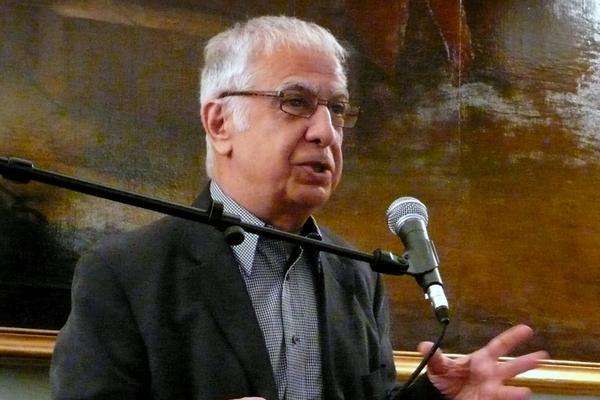


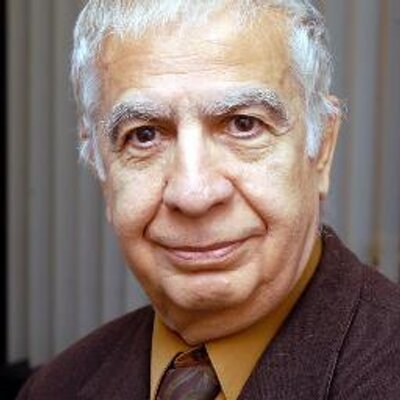



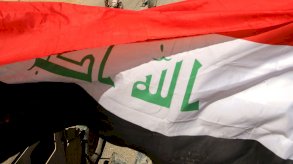
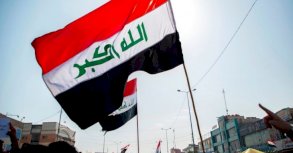
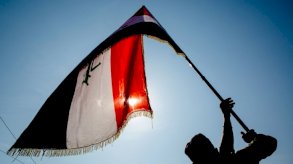
التعليقات